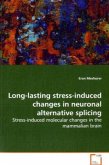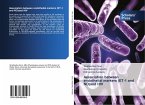Studying mechanical properties of cells is becoming increasingly important in understanding how they behave, and interact with their environment. Endothelial cells (ECs) have the capability of sensing and distinguishing between low and high fluid shear stress (FSS) conditions in the vasculature (mechanosensing), leading to preferential localization of atherosclerotic lesions in regions of arterial curvatures where blood flow changes direction and the FSS is physiologically lower. In this book, the oscillating optical tweezers (OOT) methodology was developed as a tool to study micro-mechanical properties of ECs, and used to examine mechanical changes in the vicinity of two mechanosensors, integrin and PECAM, as a response to FSS. FSS-induced structural changes in the vicinity of these mechanosensors were also visualized using confocal microscopy, where actin filament association with integrin and PECAM mechanosensors was examined using the DuolinkTM Proximity Ligation Assay. Thesestudies provided an insight on FSS-induced mechanical and structural changes in the vicinity of integrin and PECAM mechanosensors that could lead to a better understanding of mechanosensing events in ECs.
Bitte wählen Sie Ihr Anliegen aus.
Rechnungen
Retourenschein anfordern
Bestellstatus
Storno








